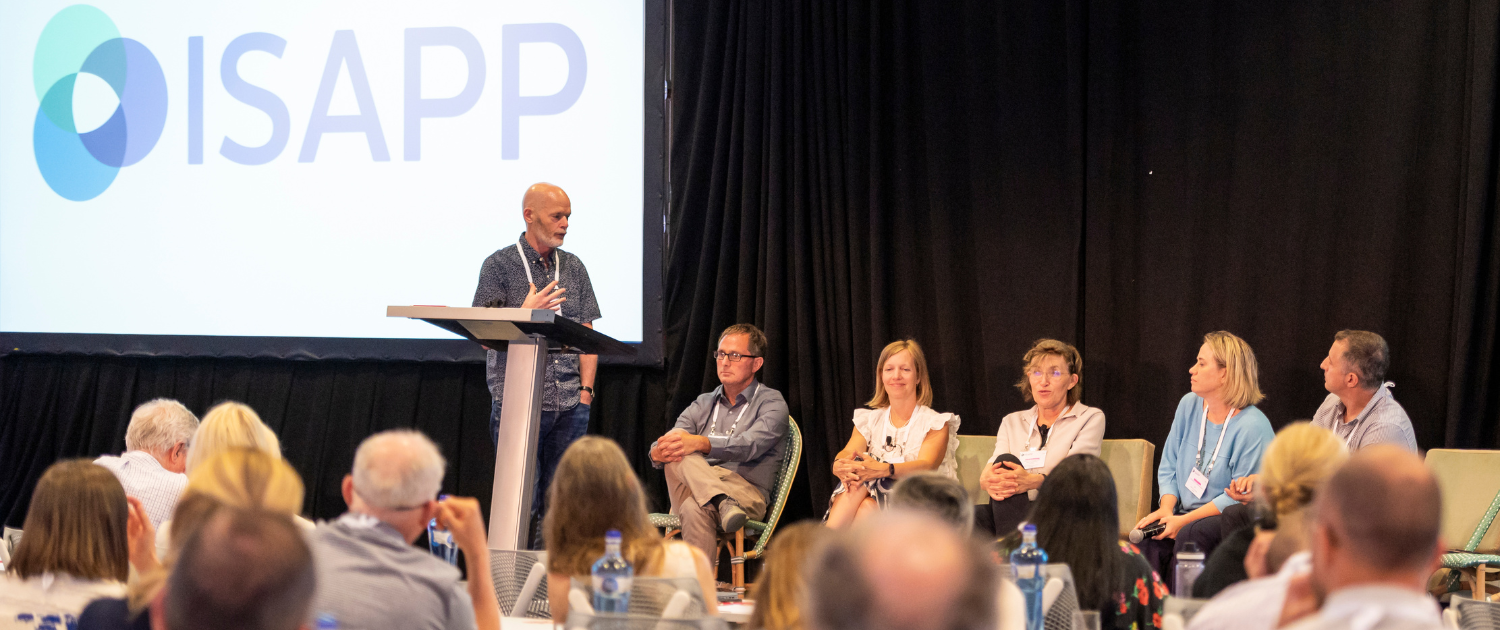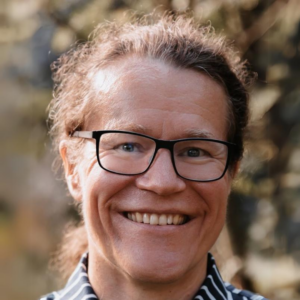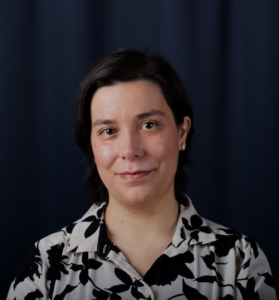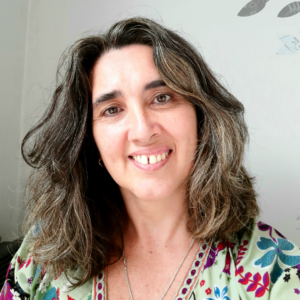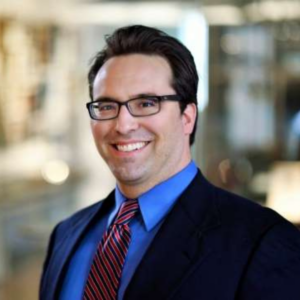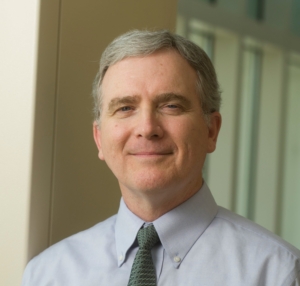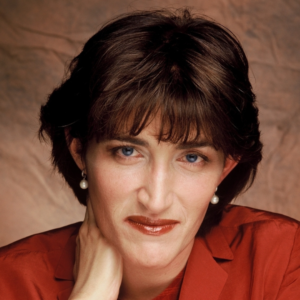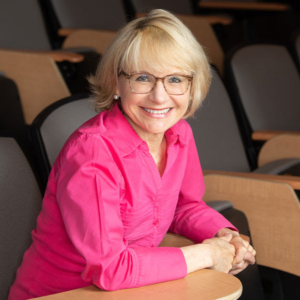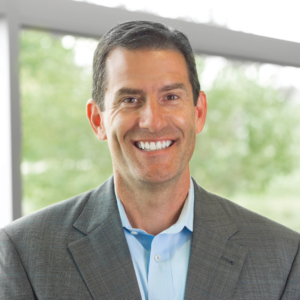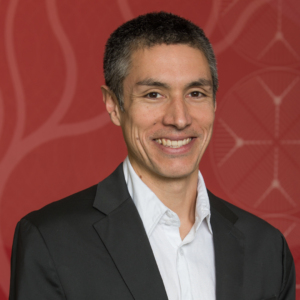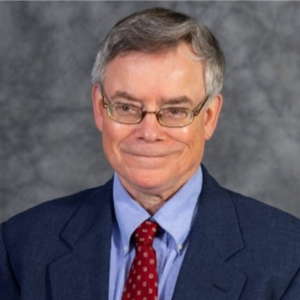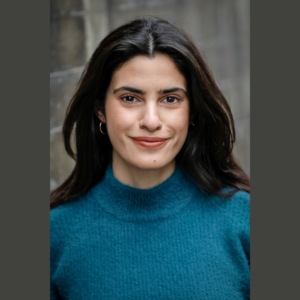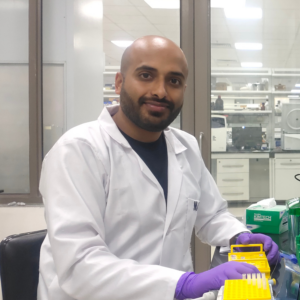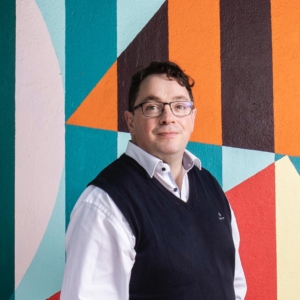The ISAPP 2024 meeting program features plenary speakers sharing cutting-edge research, including the following:
Dr. Aki Sinkkonen PhD
Principal Scientist, Doc., Ph. D. Aki Sinkkonen has published over 90 international, peer-reviewed papers in periodicals and book chapters in the fields of environmental ecology and medical sciences. He is a main and co-inventor in four patents. His group has been a global frontrunner in exposing urban dwellers to rich soil microbiota in intervention trials. The findings indicate that rich soil microbiota shifts commensal microbiota and improves immune regulation in intervention trials and in leukocyte studies. In the keynote, Dr. Sinkkonen presents the main findings and discusses the potential efficacy of certain environmental microbial taxa as pro- and postbiotics.
Dr. Ana Luis PhD
Dr. Ana Luis obtained her PhD at Newcastle University, UK. During this time, she studied the mechanisms of pectin degradation by the human gut microbiota. At the end of her PhD, she was awarded a Marie-Currie fellowship to develop her postdoctoral research at University of Michigan, USA, and University of Gothenburg, Sweden. During this time her research interests shift to mucin O-glycan active enzymes.
Since 2022, she has been an independent researcher at the Mucin Biology Groups at the University of Gothenburg, Sweden. Her research group is focused on the functional and structural characterization of enzymes and carbohydrate-binding modules in order to understand the mechanisms of mucin utilization by gut bacteria and the role of bacterial binding proteins in gut colonization. The goal of her research is to understand the basic mechanisms of microbiota-host mucin interactions.
Dr. María Pía Taranto PhD
Dr. María Pía Taranto PhD is a biochemist and Principal Investigator at the National Council for Scientific and Technical Research (CONICET) in Tucumán, Argentina. She is Co-Director of the PhD program in Biological Sciences at the National University of Tucumán (UNT), and Technical Director and Coordinator of the Yogurito Escolar Social Project and related projects. Dr. Taranto carries out her work at the Reference Center for Lactobacilli (CERELA). A specialist in probiotics, postbiotics, and synbiotics, she is experienced in basic and applied research on lactic acid bacteria as regulators of hyperlipidemia and producers of nutraceuticals. She has been involved in the design and development of probiotic products and has extensive expertise in technology transfer as well as biotechnological development between the public and private sectors.
Prof. Douwe van Sinderen PhD
Prof. Douwe van Sinderen PhD is Full Professor of Molecular Microbiology in the School of Microbiology and a Principal Investigator and Founding member of APC Microbiome Ireland, both at University College Cork, Ireland.
Research interests include bifidobacterial functional and comparative genomics, in particular pertaining to microbe-host interactions and carbohydrate metabolism. He is the co-author of nearly 600 peer-reviewed publications, has contributed to 17 book chapters, has acted as co-editor for 2 books, and is listed as an inventor on 24 patents.
Dr. Geoffrey Preidis MD PhD
Dr. Geoffrey A. Preidis, M.D., Ph.D., Associate Professor of Pediatrics at Baylor College of Medicine in Houston, Texas, is a board-certified Pediatric Gastroenterologist with basic and translational research expertise in nutrition-sensitive mechanisms that regulate intestinal and liver physiology, growth, and development. Based at Texas Children’s Hospital, which contains the largest neonatal intensive care unit in the United States, Dr. Preidis explores how the intestinal microbiome develops in extreme prematurity and how probiotics might be used to reduce the risk of necrotizing enterocolitis, sepsis, feeding intolerance, growth failure, and death in this vulnerable population. His biomedical research career began during undergraduate studies at Harvard University. He developed an interest in Neonatal Gastroenterology while in the Medical Scientist Training Program at Baylor College of Medicine. He completed internship and residency training in Pediatrics, as well as fellowship training in Pediatric Gastroenterology, Hepatology & Nutrition, at Baylor College of Medicine.
Dr. Mark Underwood MD MAS FAAP
Dr. Mark Underwood received his undergraduate degree in Italian from Brigham Young University and then attended the University of Texas Southwestern Medical School in Dallas followed by pediatric residency at UCLA. After 13 years as a general pediatrician in Montana and New Zealand, he completed a fellowship in neonatology at UC Davis and then joined the faculty there in 2006 and became the division chief in 2014. He retired from UC Davis in 2021 and now provides neonatal care in Spokane Washington. His research focuses predominantly on necrotizing enterocolitis, human milk oligosaccharides, the intestinal microbiome and probiotics. He also enjoys international collaborations and has taught and provided care across Africa, Central and Eastern Asia, Eastern Europe, South America and the Middle East.
Dr. Janet Berrington MD
Dr. Janet Berrington MD is a neonatal consultant in Newcastle, UK. She has a background in neonatal immunology research in which she completed her MD. Her major research interests are NEC and the role of the microbiome, human milk and constituents including IgA and human milk oligosaccharides. She is also the manager of the Great North Neonatal Biobank – a tissue and sample repository of more than 1000 infants less than 32 weeks gestation. This facilitates much of the translational research that she has undertaken alongside the Stewart Lab, and is open to external researchers to apply to use. She has also undertaken large randomised controlled trials in neonates and was a co-applicant on the SIFT, ELFIN, MAGPIE and AZTEC studies amongst others.
Prof. Hania Szajewska MD
Hania Szajewska, MD, is Professor and Chair of the Department of Paediatrics at the Medical University of Warsaw. Among her various functions, she served as the Editor-in-Chief of the Journal of Pediatric Gastroenterology and Nutrition; a member of the Council, and then as the General Secretary of the European Society for Paediatric Gastroenterology, Hepatology and Nutrition (ESPGHAN); the Secretary of the ESPGHAN Committee on Nutrition. Most recently, she joined the Board of Directors of the International Scientific Association for Probiotics and Prebiotics (ISAPP). Prof. Szajewska has broad interests in paediatric nutrition but her research focuses on the effects of early nutritional interventions on later outcome (especially food allergy); and the gut microbiota modifications such as with various biotics (probiotics, prebiotics, synbiotics, postbiotics). She is or has been actively involved in several European Union-funded research projects. She is an enthusiastic advocate for the practice of evidence-based medicine. She has co-authored more than 350 publications. In 2020 and 2021, Prof. Szajewska has been ranked as one of the world’s top 2% most-cited researchers.
Prof. Diane E. Hoffmann JD MS
Prof. Diane E. Hoffmann, JD MS, is the Jacob A. France Professor of Health Law, Distinguished University Professor, and Director of the Law & Health Care Program at the University of Maryland Carey School of Law. She received her law degree from Harvard Law School and her Master’s degree from Harvard School of Public Health. She is currently Chair of the Maryland Stem Cell Commission, Co-Chair of the US Association for the Study of Pain (USASP) Advocacy Committee, a member of the Editorial Board of the Journal of Medical Regulation and a member of the Scientific Advisory Board for the Center for Gut Microbiome Research & Education at the American Gastroenterological Association. She is the recipient of three NIH grants, most recently an R01 from the National Human Genome Research Institute to evaluate the regulatory framework for direct-to-consumer microbiome-based tests. Hoffmann has published numerous articles on health law and policy issues in legal journals as well as scientific and medical journals including Science, JAMA, the NEJM, and the Annals of Internal Medicine.
Dr. Greg Leyer PhD
Dr. Greg Leyer received his PhD from the University of Wisconsin – Madison from the Department of Food Microbiology and Toxicology in 1993 whereafter he began a 30-year career in the ‘biotic’ sciences. He spent five years at Abbott Nutrition developing innovative probiotic solutions for adults and children in the medical and pediatric nutrition space. Greg then held several probiotic-focused senior research and business development positions in a 15-year career at Danisco – DuPont. In 2013, Greg joined forces to acquire UAS Laboratories, a probiotic-focused dietary supplement company, where he held the role of Chief Scientific Officer with broad responsibilities while onboarding a state-of-the-art microbial fermentation and freeze-drying facility. In 2020, Chr. Hansen acquired UAS Labs and Greg fulfilled the role of Sr. Director –Scientific Affairs within the Human Health business unit until the end of 2023. Greg is now an independent consultant assisting a variety of companies in the ‘biotic’ space, and throughout his career has published multiple papers in the areas of probiotic clinical benefits, application know-how, and microbial safety parameters.
Prof. KC Huang PhD
KC Huang was an undergraduate Physics and Mathematics major in Page House at Caltech, and spent a year as a Churchill Scholar at Cambridge University working with Dr. Guna Rajagopal on Quantum Monte Carlo simulations of water cluster formation. He received his PhD from MIT working with Prof. John Joannopoulos on electromagnetic flux localization in polaritonic photonic crystals and the control of melting at semiconductor surfaces using nanoscale coatings. During a short summer internship at NEC Research Labs, he became interested in self-organization in biological systems, and moved on to a postdoc with Prof. Ned Wingreen in the Department of Molecular Biology at Princeton working on the relationships among cell shape detection, determination, and maintenance in bacteria. His lab is currently situated in the departments of Bioengineering and Microbiology & Immunology at Stanford, and his current interests include cell division, membrane organization, cell wall biogenesis, and the organizational principles of bacterial communities. He has been director of the Biophysics Graduate Program since 2015, and the chair of the DEI committee for the Aspen Center for Physics board.
Dr. Steven C. Ricke PhD
Dr. Steven C. Ricke PhD received his B.S. and M.S. from the Univ. of Illinois, Champaign-Urbana, IL. and Ph.D. from the Univ. of Wisconsin, Madison, WI. Dr. Ricke was a USDA-ARS postdoctorate in the Microbiology Department at North Carolina State Univ. then joined Texas A&M Univ. as a professor in the Poultry Science Dept. In 2005, he became the first holder of the new Donald “Buddy” Wray Endowed Chair in Food Safety and Director of the Center for Food Safety at the University of Arkansas (UA) and was a faculty member of the Dept. of Food Science and Cellular/ Molecular Graduate program. In 2020 he became the Director of the Meat Science and Animal Biologics Discovery Program in the Animal and Dairy Sciences Dept. at the University of Wisconsin-Madison. Dr. Ricke conducts studies on the growth, survival, and pathogenesis of pathogens in the poultry gut and their interactions with gut microbiota.
Dr. Boushra Dalile PhD
Dr. Boushra Dalile PhD is a Postdoctoral Researcher at the Laboratory of Biological Psychology at KU Leuven, Belgium. She was trained in psychology (Swinburne University of Technology, Australia) and cognitive neuroscience (University of Skövde, Sweden; The Max Planck Institute for Human Cognitive and Brain Sciences, Germany), before being awarded a PhD in Biomedical Sciences in 2021 at the Translational Research Center for Gastrointestinal Disorders at KU Leuven under supervision of Prof. Kristin Verbeke. Since her PhD, she investigates the effects of dietary fiber and the role of short-chain fatty acids (SCFAs) on stress and anxiety, and is currently mapping out their putative mechanisms of action in humans. Her latest research seeks to harness butyrate’s neuro-psychopharmacological potential in modulating learning and memory to advance translational research on anxiety and help shape treatment options and dietary recommendations. Her work was published in Nature Reviews Gastroenterology & Hepatology, The Lancet Planetary Health, Neuropsychopharmacology, and Psychoneuroendocrinology.
Dr. Rounak Chourasia PhD
Dr. Rounak Chourasia PhD currently serves as a Research Associate at the National Agri-food Biotechnology Institute (NABI) in Mohali, India. He earned his PhD in Biotechnology in 2023 under the mentorship of Dr. Amit Kumar Rai and Prof. Dinabandhu Sahoo and achieved first rank in both his BSc and MSc (Microbiology) from the University of North Bengal. Rounak dedicated his Ph.D. work towards functional enhancement of traditional chhurpi cheese of the Sikkim Himalayas. He devised a method to produce milk chhurpi using specific lactic acid bacterial strains, unveiling novel bioactive peptides with potential nutraceutical benefits. Additionally, he developed a bioactive peptides-enriched novel soybean cheese tailored for individuals with lactose intolerance and provided a foundation towards entrepreneurial opportunities for local farmers. Presently, his research focuses on evaluating the metagenomics and metabolomics of traditional fermented millet foods in India, with the goal of creating functional fermented millet products. With 18 published papers, seven book chapters, an average impact factor of 5.6, and over 600 citations, his contributions have been widely recognized. Rounak received the Anna University – Centre for Biotechnology (AU-CBT) Excellence Award in 2021 and The Association of Microbiologists of India (AMI) Young Scientist Award in 2023, highlighting his commitment to advancing fermented foods research.
Prof. Cath O’Neill PhD
Prof. Cath O’Neill PhD is Professor of Translational Dermatology and Associate Dean for Business Engagement in the Faculty of Biology, Medicine & Health at the University of Manchester. She received both her B.Sc (Hons) and PhD from the University of Wales (Bangor) where she studied Biochemistry. Caths’ research work focuses on the human microbiome and whether it can be harnessed as a therapy for skin in health and disease. Her work is very translational and several basic laboratory findings have been developed and tested in human clinical studies. This translational approach has led to the creation of two spin out companies: Curapel in 2011 and SkinBioTherapeutics plc in 2017 which she led as CEO and subsequently as CSO until 2024. Caths’ current interests are centred on the impact of sunlight on skin and its microbiome and how the microbiome modulates skin response to ultraviolet radiation.
Prof. John F. Cryan PhD
Prof. John F. Cryan PhD is Professor & Chair, Dept. of Anatomy & Neuroscience, University College Cork and was appointed Vice President for Research & Innovation in 2021. He is also a principal investigator in APC Microbiome Ireland. Prof. Cryan has published over 650 peer-reviewed articles and has a H-index of >162 (Google Scholar). He is a Senior Editor of Neuropharmacology and of Neurobiology of Stress and is on the editorial board of a further 10 journals. He has co-edited four books and is co-author of the bestselling “The Psychobiotic Revolution: Mood, Food, and the New Science of the Gut-Brain Connection”. He has been on the Highly Cited Researcher list in 2014 and from 2017 to the present. He was elected a Member of the Royal Irish Academy in 2017; has been a TEDMED & TEDx Speaker.

